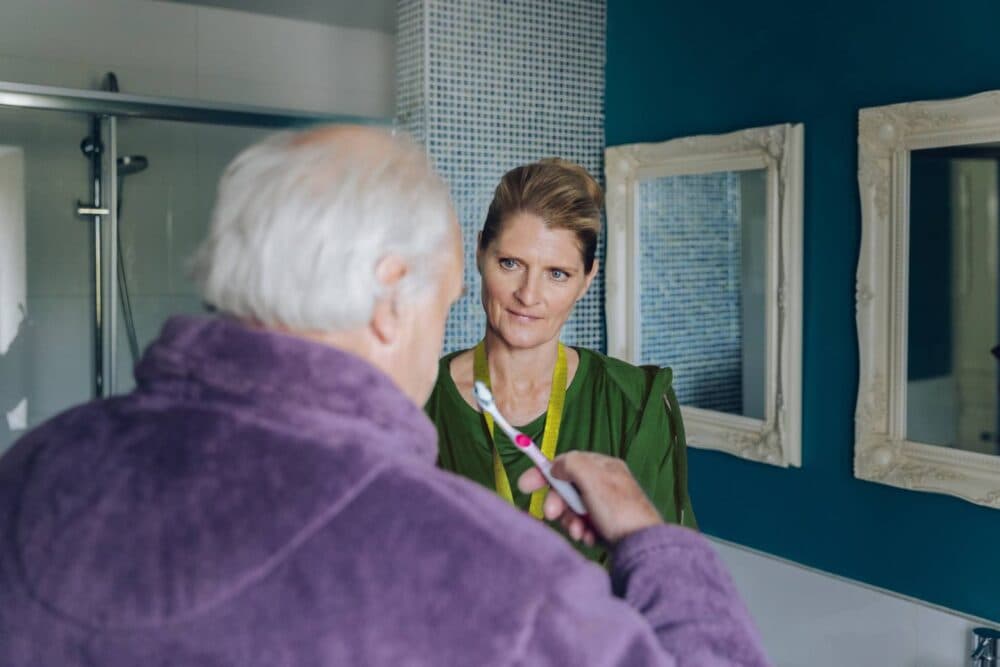What is the 7-Year Rule for Care Home Fees? The Truth You Need to Know

Have you ever wondered whether giving away your savings or property years in advance can help you avoid care home fees? Many people assume that if they transfer assets at least seven years before requiring care, those assets will be excluded from financial assessments. Unfortunately, this is a widespread misunderstanding.
Understanding how care home fees are assessed and what the rules really mean is essential when planning for the future. Let’s explore the truth behind the so-called “7-year rule” and what you should know about managing care costs legally and effectively.

Does the 7-Year Rule Apply to Care Home Fees?
Many people confuse care home fee rules with inheritance tax regulations. For inheritance tax, assets gifted at least seven years before death may not be included in the estate for tax purposes. However, care home fees are assessed differently.
Local authorities are responsible for determining an individual’s financial contribution to their care. If they suspect that someone has deliberately given away assets to avoid paying for care, they can still count those assets in a financial assessment—regardless of when they were gifted.

How Are Care Home Fees Assessed?
When an individual requires residential care, the local authority will conduct a financial assessment (means test) to determine whether they qualify for state-funded support. This assessment considers income, savings, and assets, including property in some cases.
The way assets are assessed depends on the type of care required:
- Care at home: The person’s property is not included in the assessment.
- Residential care: The home is included unless a qualifying relative (such as a spouse or dependent) continues to live there.
Financial Thresholds in the UK (2024/2025)
Each UK nation has different savings thresholds for care funding:
- England
- Upper threshold: £23,250
- Lower threshold: £14,250
- Scotland
- Upper threshold: £35,000
- Lower threshold: £21,500
- Wales
- Upper threshold: £50,000
- No lower threshold
- Northern Ireland
- Upper threshold: £23,250
- Lower threshold: £14,250
Anyone with assets above the upper limit is required to fully fund their own care. Those with assets between the upper and lower thresholds may receive partial funding. If assets fall below the lower threshold, full local authority support is available.

What Is Deprivation of Assets?
Local authorities have the right to investigate whether an individual has deliberately reduced their assets to qualify for care funding. This is known as deliberate deprivation of assets. Common examples include:
- Gifting large sums of money – If done shortly before requiring care, this may be flagged as deliberate deprivation.
- Selling property below market value – If care needs were foreseeable, this could be treated as an attempt to avoid fees.
- Placing assets in a trust – Depending on the structure, some trusts may not protect assets from financial assessments.
- Making extravagant purchases – Buying expensive items without necessity may raise concerns.
If deliberate deprivation is proven, the local authority can treat the transferred assets as if they were still owned by the individual. This means the person may still be expected to pay care fees as if they had never given those assets away.

Common Misconceptions About the 7-Year Rule
“If I gift my house to my children seven years before needing care, it won’t be counted.”
❌ False. If a local authority believes the transfer was made to avoid care fees, they can include the property in the assessment, no matter how long ago it was gifted.
“Authorities can only investigate financial transactions from the last seven years.”
❌ False. Unlike inheritance tax, care fee assessments have no fixed time limit. If deliberate deprivation is suspected, authorities can review transactions that took place beyond seven years.
“Giving money away gradually won’t be counted.”
❌ False. Small, regular gifts for birthdays or special occasions are generally allowed. However, larger gifts made before requiring care could be considered deliberate deprivation.

Legal and Ethical Ways to Manage Care Home Fees
While giving away assets to avoid care fees is not recommended, there are legitimate ways to manage costs effectively:
1. Deferred Payment Agreements (DPA)
A Deferred Payment Agreement allows individuals to delay paying care home fees by using their home as security. The local authority covers the fees upfront, and repayment is made from the estate after death.
2. NHS Continuing Healthcare (CHC)
Some individuals with complex medical needs may qualify for NHS Continuing Healthcare, which covers full care home costs regardless of financial situation. Eligibility is based on medical needs rather than income.
3. Seeking Professional Financial Advice
A specialist in elder law or a financial planner can provide guidance on:
- How to structure assets legally.
- Whether trusts can be beneficial.
- Planning ahead without risking a deprivation of assets ruling.

How Jointly Owned Property Is Assessed
If an individual owns a property jointly, its treatment in a financial assessment depends on:
- A spouse or dependent relative living there – The home is usually exempt.
- Shared ownership with a family member who does not live there – Only the care recipient’s share is assessed.
- Property placed in a trust – Depending on the trust’s structure, the local authority may still include it in the assessment.

Challenging a Deprivation of Assets Decision
If a local authority determines that a person has deliberately deprived themselves of assets, they have the right to appeal the decision. The appeal process may require:
- Bank statements – To show a history of gifting.
- Letters or agreements – Explaining financial transactions.
- Medical records – Proving that care needs were not foreseeable at the time of asset transfer.
If the challenge is unsuccessful, the case can be escalated to the Local Government and Social Care Ombudsman.

Upcoming Changes to Care Funding
From October 2025, the upper savings threshold for care funding in England will rise to £100,000, allowing more people to qualify for financial support. However, deprivation of assets rules will still apply, meaning attempts to transfer wealth before an assessment may continue to be investigated.

Are Family Members Responsible for Paying Care Fees?
Legally, next of kin are not required to cover a relative’s care home fees. However, families may choose to pay top-up fees if the chosen care home exceeds the local authority’s funding allowance. This is entirely voluntary and should be carefully considered before making a commitment.

Final Thoughts
Understanding the reality of care home fees and the 7-year rule is vital when planning for the future. Key points to remember include:
- The 7-year rule applies to inheritance tax, not care home fees.
- Local authorities can investigate financial transactions beyond seven years if they suspect deliberate deprivation.
- Certain assets may be exempt from means testing, but gifting property or money is not a guaranteed protection.
- Deferred Payment Agreements and NHS Continuing Healthcare may help manage care costs legally.
- Seeking professional legal and financial advice is strongly recommended before making significant financial decisions.
For further support and advice on elderly care in South Lanarkshire and Hamilton, contact Home Instead South Lanarkshire Hamilton today. Our dedicated team is here to help families navigate the complexities of care planning with confidence and peace of mind.

Areas We Serve
Hamilton, Uddingston, Motherwell, Bothwell, Strathaven, Bellshill, Rutherglen, Cambuslang
G71 5, G71 6, ML2 7, ML4 3, ML1 3, ML1 2, ML2 0, ML4 1, ML4 2, G72 6, G73 5, G71 8, G72 9, G73 4, G71 7, ML1 1, ML1 4, G72 0, ML2 8, ML1 5, G72 8, G72 7
Unit 2 Brandon House Business Centre, 23-25 Brandon St, Hamilton ML3 6DA